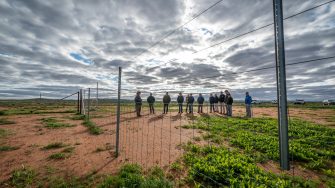
Synopsis
Conservation and restoration of ecological communities and ecosystems are fundamental for a nature positive future. National and state level environmental laws for protection and management of threatened communities need to be informed by scientific evidence.
There are plenty of sources of environmental data (e.g. remote sensors, drones, camera traps, citizen science) that are potentially useful for monitoring ecosystems but the challenge is to transform these data streams into informative indicators of integrity for particular types of ecosystems. Our research group has designed a robust framework for the design of ecosystem-specific indicators rooted in our conceptual understanding of ecosystem function and ecosystem collapse.
Aims
The aim of this project is to use data science techniques to develop and evaluate indicators that can inform assessments of risk of ecosystem collapse and measures of ecosystem recovery. The student will test novel approaches to assemble data and design informative indicators for exemplar threatened ecosystems or ecological communities using:
- conceptual models of ecosystem function,
- new or existing data sets with time series of observations/records,
- data science approaches appropriate for the selected data set: statistical models, machine learning and/or artificial intelligence
Student benefits
This project will give you opportunities to:
- learn about threatened ecosystem types from New South Wales,
- learn how to use data science approaches for extracting knowledge from data,
- learn about UNSW Data Science Hub,
- learn about the International Union for the Conservation of Nature and the Red List of Ecosystems and their impact in national policy,
- connect with national and global networks of researchers and conservationists
The project will provide experience relevant to careers in biological conservation and ecological research. You will also learn tools that are broadly applicable to data problems in other fields of research and in industry.
Supervisors: Dr. José R. Ferrer-Paris and Prof. David Keith
Get involved
To learn more about this project, contact Dr. José R. Ferrer-Paris and Prof. David Keith
Dr. José R. Ferrer-Paris
T: +61 2 9065 3808
Prof. David Keith
T: +61 2 9385 2111
